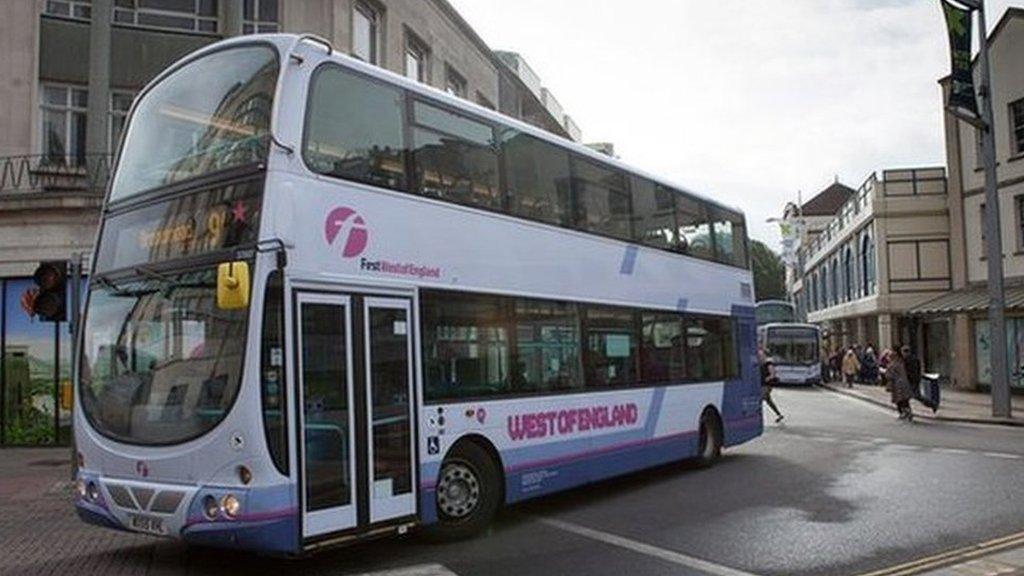South Bristol risks becoming a 'bus desert', campaigners say
- Published
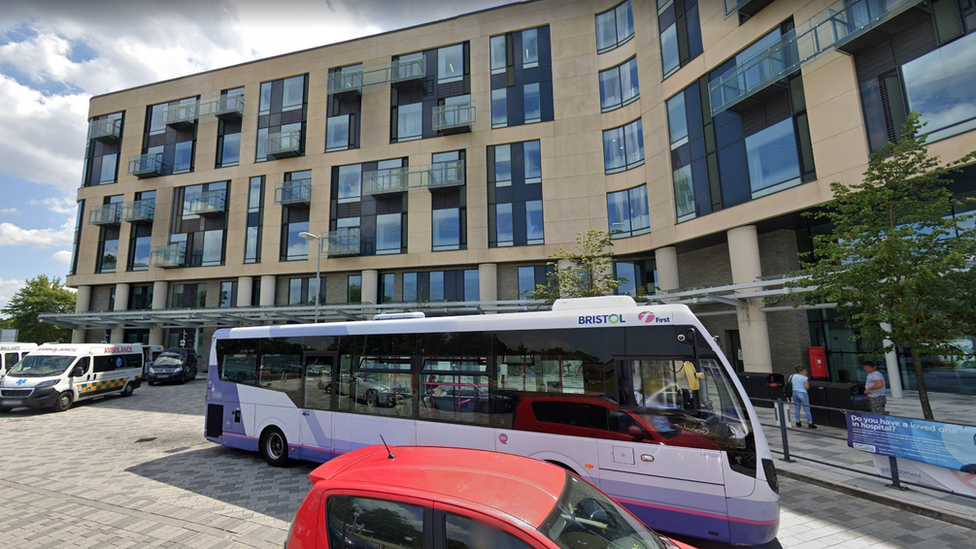
Main links to Southmead hospital in Bristol are being cut, including the 17 and 506 bus services
Transport campaigners say they fear south Bristol will become a "bus desert" when services are cut in April.
From April, 42 services are due to be cut across the West of England following a vote by political leaders last month.
The cuts were made in a move to stop supporting most of the region's loss-making routes.
Vital routes to hospitals, schools, colleges and workplaces are among the services to be axed.
The Local Democracy Reporting Service said Bristol City Council cabinet member for transport councillor Don Alexander justified the authority's refusal to increase the transport levy paid to the combined authority for buses.
Mr Alexander said that "much of that money would go into the pockets of shareholders" of private operators who run them.
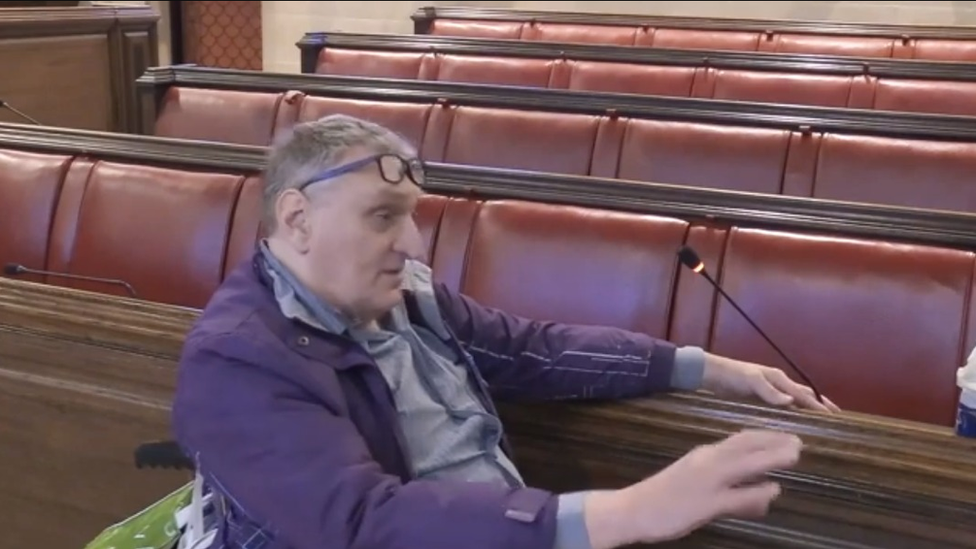
Public transport campaigner David Redgewell addressed Bristol City Council budget scrutiny commission on Thursday
Bus passenger champion David Redgewell told a city council budget scrutiny meeting on 2 February that the root of the problems causing 42 subsidised routes to be withdrawn was that metro mayor Dan Norris had to rely on money from the local councils to keep buses running.
He said that although Mr Norris led the region's transport authority West of England Combined Authority (Weca), he did not have precepting powers to raise funds directly from residents, like council tax.
"This year there is simply not enough funding to cover the cost of providing bus services, which has gone up for First and Stagecoach," said Mr Redgewell.
"However, if we don't find a solution, 42 buses will be removed from the network on April 1.
"The problem we have in Bristol is that the main links to Southmead Hospital are being cut, including the 17 and the 506."
Green councillor Barry Parsons said his Easton ward was losing the "lifeline" 506 for Southmead Hospital patients.
Mr Redgewell added: "South Bristol becomes a bus desert of any orbital bus services - there will be buses coming from the city centre but there will be no buses crossing South Bristol apart from the Airport Flyer."
Mr Alexander said: "We have not offered to put more money in, and I agree with that, because so much of it would go towards private operators and their shareholders.
"It wouldn't be fed back into services at all. We would be investing in a system I don't support."

Follow BBC West on Facebook, external, Twitter, external and Instagram, external. Send your story ideas to: bristol@bbc.co.uk , external
Related topics
- Published20 January 2023
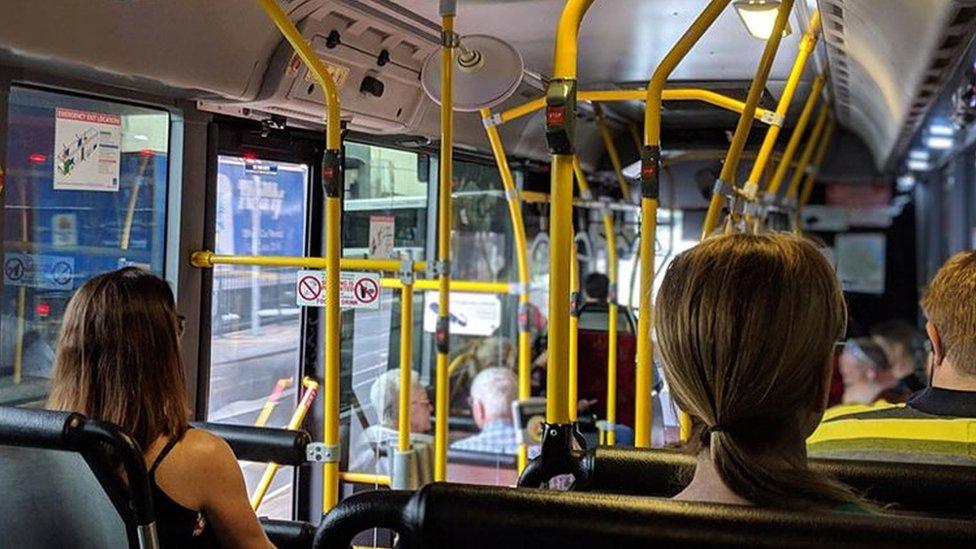
- Published16 November 2022
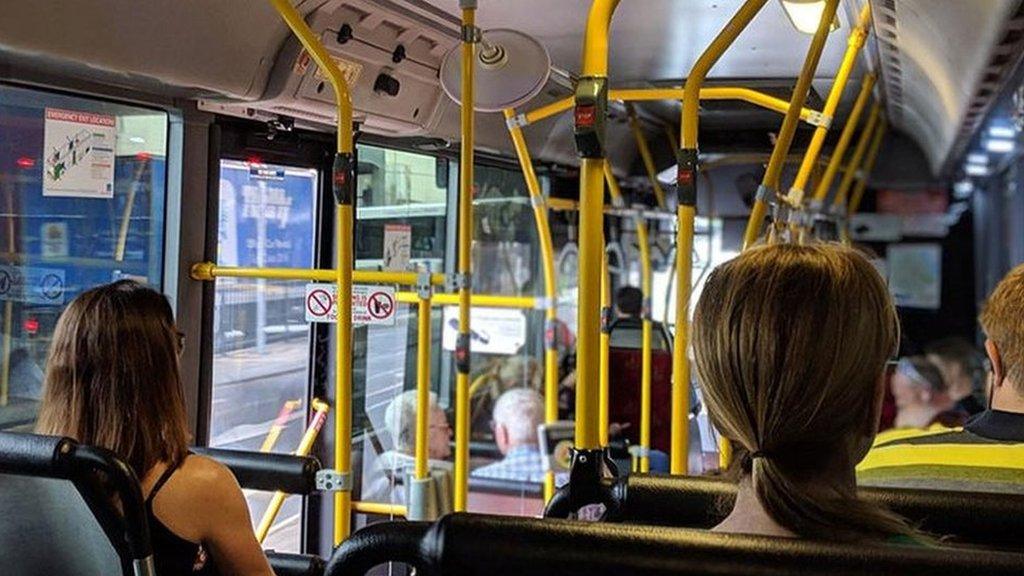
- Published26 August 2022
